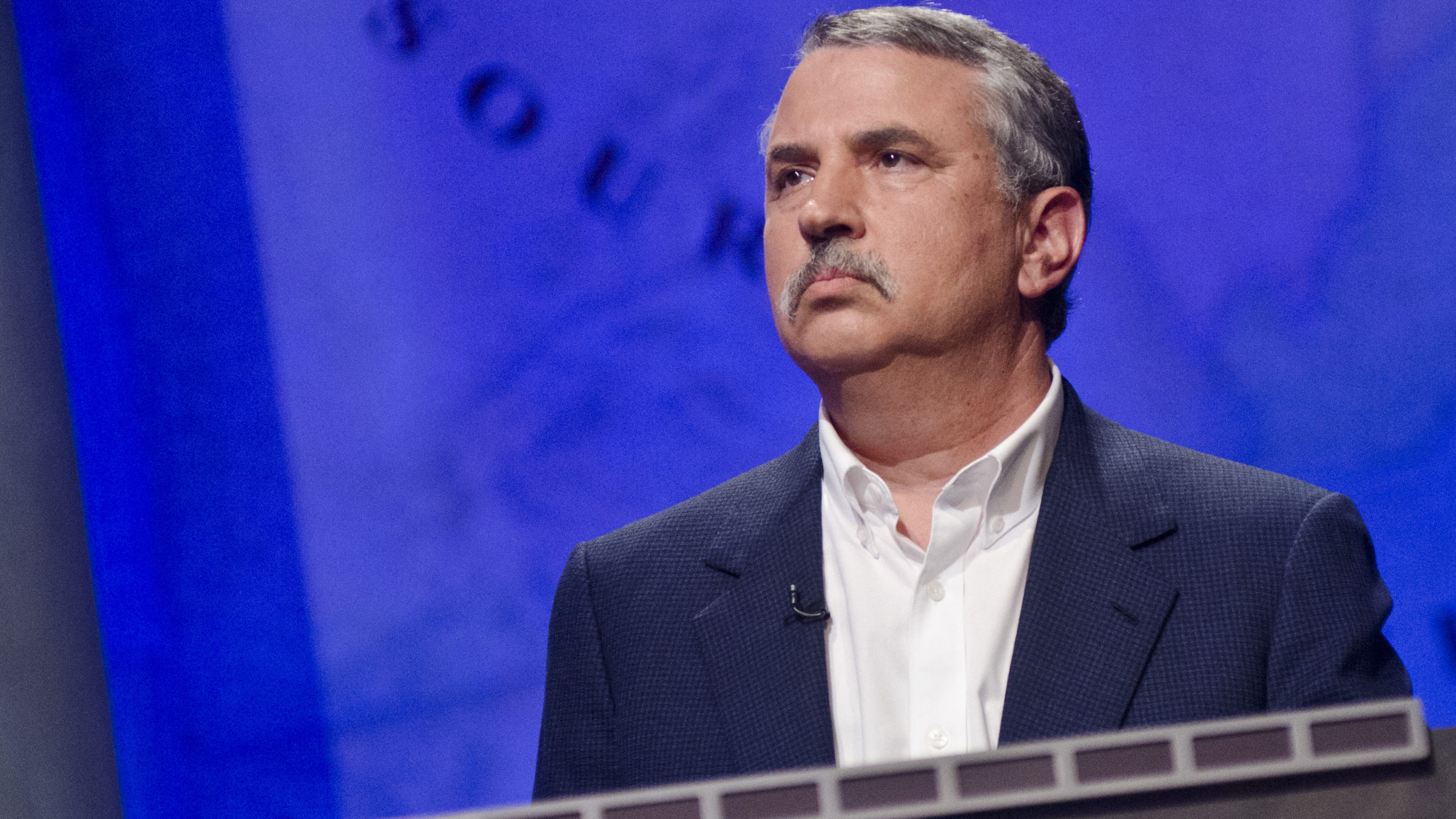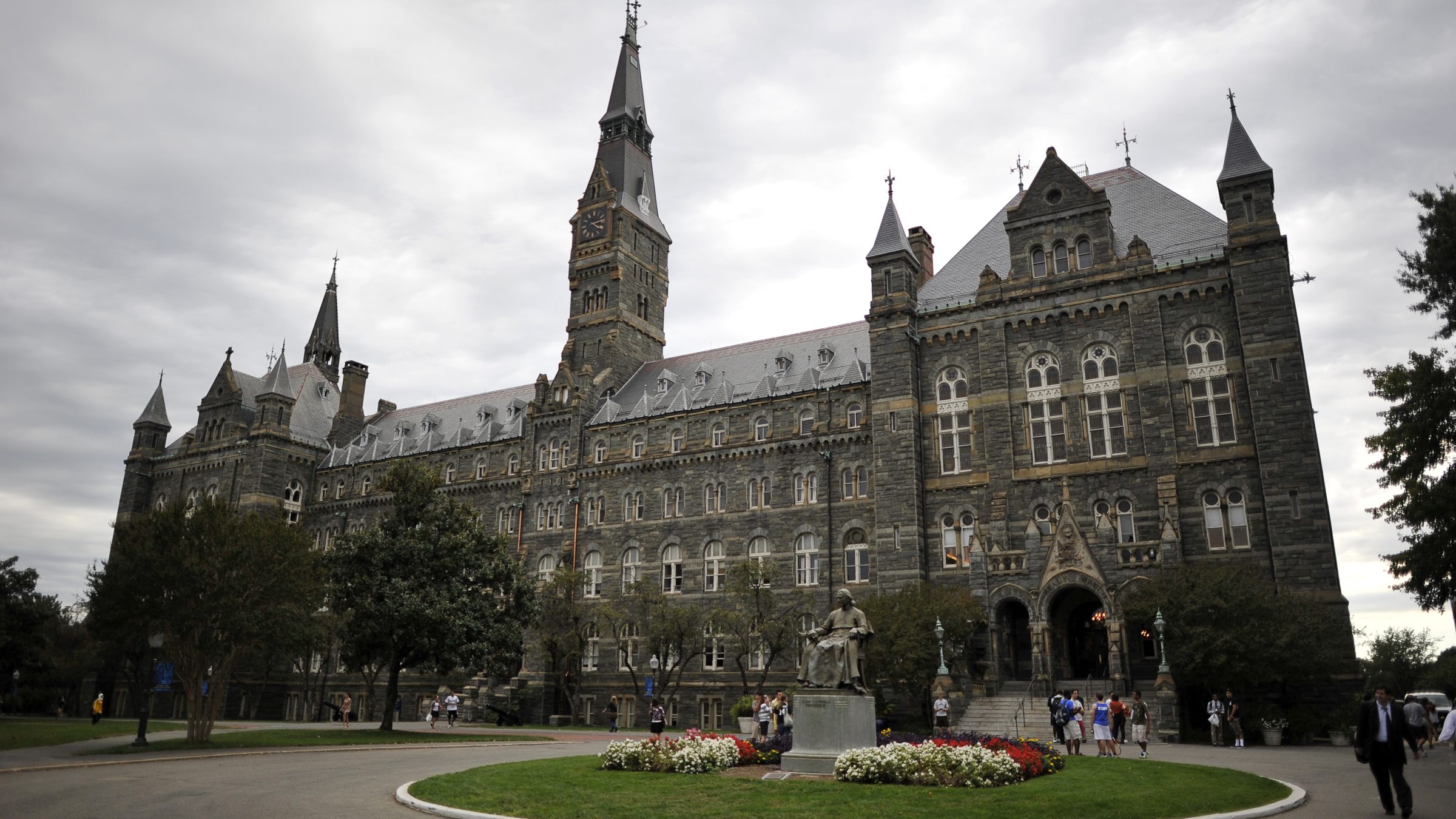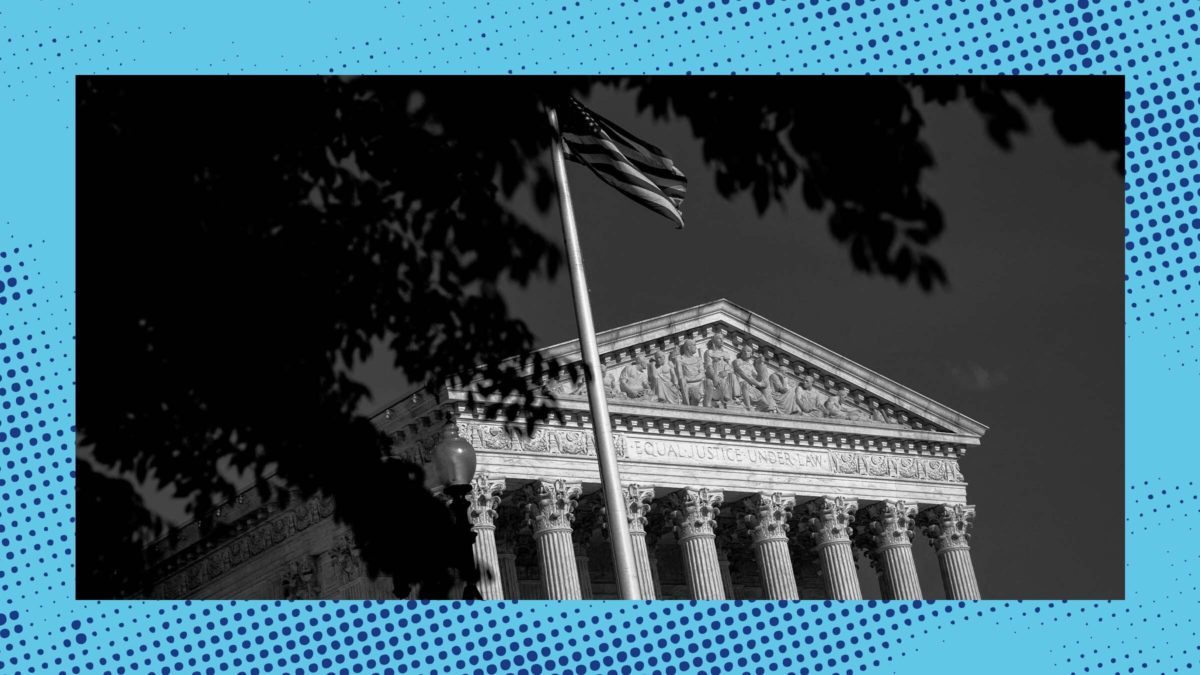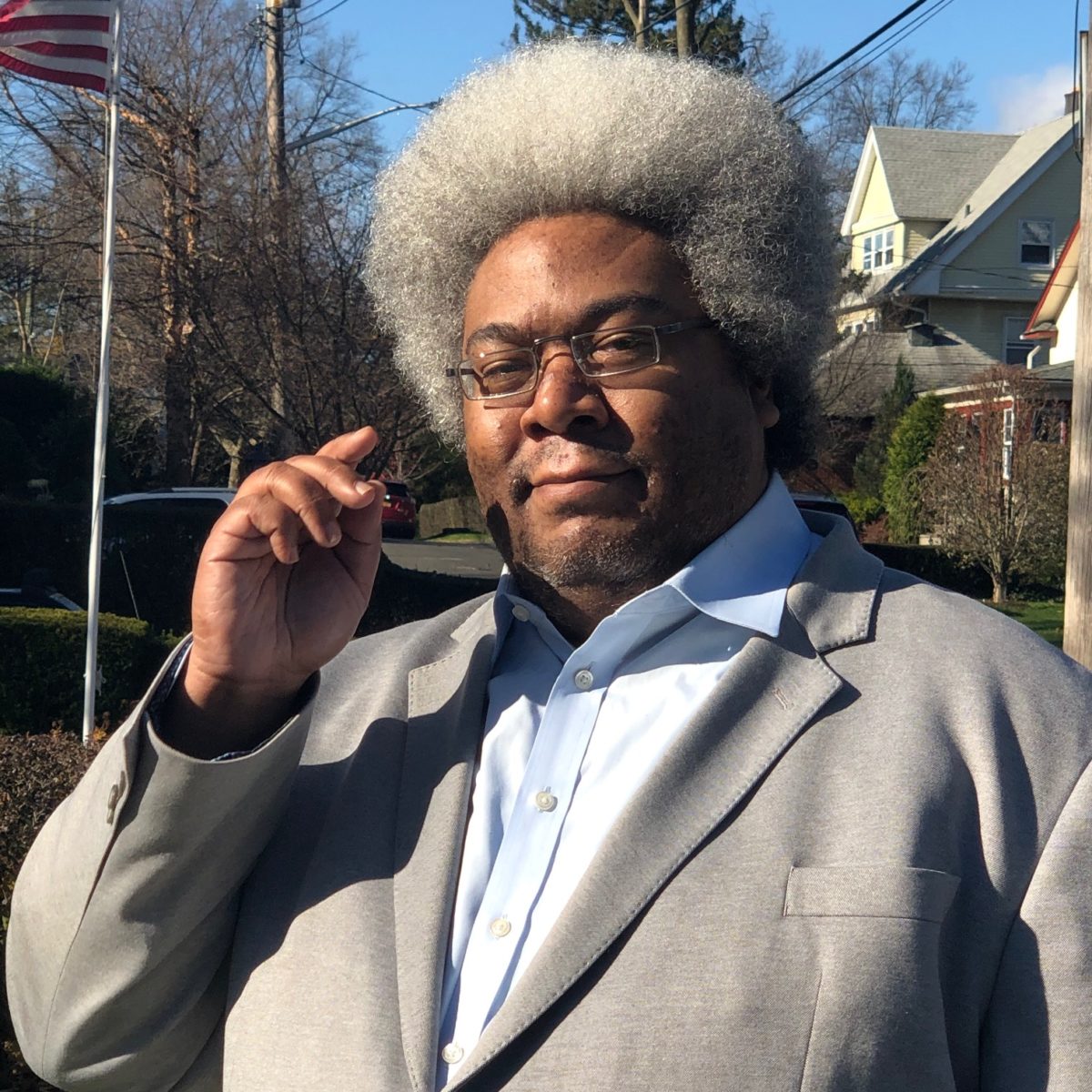When I was in school, I actively sought out professors and lecturers who espoused views I disagreed with. I took classes taught by Harvey C. Mansfield, George F. Will, and Alan Dershowitz, and shared an apocryphal cab with Thomas Freidman. I believed (accurately, it turns out) that these were the kinds of white men I’d be fighting for the rest of my life, so I’d better learn firsthand how they think. I also knew that many of my classmates who agreed with these men would themselves go on to be leaders in industry and politics. If I seem somewhat uniquely able to rhetorically joust with the legal proto-fascists currently mucking about in America, it’s because I’ve already thought about everything they think about. I’ve done their reading.
I’m glad I had the option to treat my academic studies like a Rocky Balboa training montage, which means I’m glad my educational institutions gave tenure to conservative faculty members and empowered them to teach what they believe. Even though I disagreed with these men about a great many things—a feeling I’m sure is mutual—I was privileged to learn from some of the people who are most skilled at being wrong.
But conservative “thought” is not what it used to be. And conservative “skill” at expressing those thoughts has now largely devolved into what plays well on Fox News. In my day, you could distinguish between, say, William F. Buckley and David Duke. And, more to the point, even if you couldn’t draw a meaningful distinction between the policies Buckley and Duke would support, Buckley was carefully practiced in saying the quiet part quietly. James Baldwin could hear it, but most white folks could not (or would not).
Conservatives will tell you that liberals have changed—that a rise of “illiberalism” is squelching free speech across academia, and chipping away at freedom anywhere and everywhere else. The same conservatives who used to value a good hood when doing racism now have a public meltdown when you ask them to put on a mask.

When you’ve got a column to file in two hours but your cab driver isn’t chatty (Photo by Kris Connor/Getty Images)
Mainstream conservatism has lurched far to the right during my lifetime. I’m part of the first Black generation since the end of Reconstruction who will die in a country that is more legally bigoted than it was when we were born. Take the Voting Rights Act, which in 2006 was reauthorized by an overwhelming majority of the House and received unanimous approval in the Senate. Just 15 years later, the John Lewis Voting Rights Advancement Act—meant to restore the original Voting Rights Act after the conservative-controlled Supreme Court eviscerated it in 2013—received 219 votes in the House, none of them from Republicans, and couldn’t get anywhere near 60 votes in the Senate. What conservatives would have acknowledged as racist as recently as 20 years ago is today’s conservative orthodoxy.
And yet, the bigoted trash that gets trundled out on Tucker Carlson every night is what these white wingers actually believe. The fact that their racism is raw and unapologetic doesn’t make it any less real, or any less of a force in American society. This dynamic is especially acute in legal academia, where the bigotry endemic to mainstream conservative thought is given the force of binding law by the U.S. Supreme Court and judges throughout the federal and state court systems. Chief Justice John Roberts has made a career out of limiting the ability of Black people to vote. Clarence Thomas thinks systemic racism is just something Black people are supposed to overcome, while his wife is famous for actively supporting a violent insurrection. Samuel Alito—well, the only thing that mitigates his antipathy towards Black people is that he also hates women, gay people, Muslims, civility, democracy, and the truth.
This devolution of conservative politics puts both media and academia in a bind. To platform or promote a modern, mainstream conservative is to platform views that were widely condemned as recently as the America Online era. How can you possibly have conservative academics or talking heads who will teach and discuss what conservatives jurists actually believe without elevating people whose worldview is directly at odds with a pluralistic, inclusive society?
To date, the academy has had few qualms about welcoming them with open arms. Don’t let the Bari Weiss-level grifters fool you. Conservative thought is still well-represented in universities and law schools, even as those thoughts turn out to be little more than the lightly refurbished caterwaulings of Andrew Jackson. Richard Sander, who came up with his own racial eugenics theory to justify opposition to affirmative action, still has a job. Amy Wax, who is constantly going on about the alleged superiority of white Western culture to anyone who will listen, still has a job. And Ilya Shapiro, late of the Georgetown Center for the Constitution, would still have a job, if he wanted it.
Shapiro, a longtime Cato Institute staffer, became internet famous earlier this year shortly after the Supreme Court nomination of now-Justice Ketanji Brown Jackson. After Justice Stephen Breyer announced his retirement, Shapiro tweeted that Biden would end up nominating a “lesser black woman” because of Biden’s campaign promise to put a Black woman on the Court for the first time in American history. Shapiro opined that Sri Srinivasan, a federal appeals court judge, was “objectively” the more qualified choice, and noted that Srinivasan brings the “identity politics benefit” of Southeast Asian descent, too, as if that were somehow supposed to inoculate Shaprio from accusations of racism.
(Obviously, the problem with Shapiro’s tweet was the notion that any Black woman Biden could think of would be a “lesser” choice than Srinivasan, but here I’m using textualism to illustrate racism to conservatives who just want racism to be okay.)
Shapiro apologized and deleted this “inartful” tweet, but he was a well known conservative polemicist long before Georgetown hired him. Questioning the credentials of people of color in the law has been something of a habit: During the Sonia Sotomayor confirmation hearings in 2009, he said that Obama’s choice to nominate her was not based on merit, and that she was not among the “leading lights of the federal judiciary.” He also had smoke for Eric Holder, the first Black Attorney General, whom Shapiro once called “a modern-day George Wallace.”
Shapiro’s racial antipathy was well known to Georgetown—or, at the very least, should have been known to Georgetown—when they hired him. But in the wake of the “lesser black woman” comments, the school suspended him and launched an investigation into his comments and behavior. That investigation lasted four months, during which Shapiro did nearly all he could to get fired: He spent his suspension criticizing his would-be colleagues for their tweets, pretending to not understand the difference between racism and advocacy for peaceful protests. And he bizarrely told Politico about justices going into hiding after the leak of the draft opinion overturning Roe v. Wade, and then, when no evidence could be produced to back up his claim, wouldn’t tell anybody why he believed such a thing in the first place.

Georgetown University, where Ilya Shapiro will NOT be teaching students this fall (MLADEN ANTONOV/AFP via Getty Images)
But Georgetown didn’t fire him. Last week, it announced that because Shapiro’s comments technically came before he assumed his position at the university, he would not be subject to discipline. Left unsaid is the reality that denigrating women of color, making false equivalencies, and repeating unsourced rumors about what “many people are saying” is just what counts as mainstream conservative thought these days. I feel sorry for Georgetown, I really do. If a university wants conservative voices, they now usually come in the package of a bigoted Twitter troll who is too basic to be “artful” about what they believe.
Compounding Georgetown’s predicament is the fact that people like this don’t actually want to teach, they want to fight. Shapiro doesn’t want to sit in a stuffy classroom in February and explain his gross views to 17 hung-over students in a seminar. He wants to go on Bill Maher and cry about how he was “canceled” while he gets feted like his name is Joan D’umbass.
And so, after Georgetown refused to fire him, he quit. He resigned, sat for a puff piece profile in The New York Times, and penned his own self-serving manifesto in The Wall Street Journal. There’s more money to be made and plaudits to be garnered as a conservative who was punished for saying racist things then there is to be had as a conservative who says racist things without drawing attention to themselves. Since Georgetown wouldn’t actually punish him—since the entire cancel culture argument never survives any contact with reality—Ilya Shapiro punished himself. He self-deported so he could grift off the idea that conservatives are getting banished.
None of these conservative academics are actually going anywhere. (On Tuesday, Shapiro joined Tucker Carlson’s Fox News show to announce that he’s going to the Manhattan Institute, which is a conservative think tank, not a farm upstate where conservatives can pretend their ideas go to die.) Nobody is banning their books. Nobody is stopping them from speaking or publishing. And their racist and misogynist policies are actually supported by six votes on the Supreme Court, which is one more than they even need.
In my day, I had to go to an expensive Ivy League school to get an education in how conservatives think. I spent days, weeks in a library reading through every one of Ronald Reagan’s public speeches—every single one—on the budget or welfare reform to try to understand how he was using language to promote racial stereotypes. That’s what it took to learn my enemy.
Now, I can hear Dershowitz’s ridiculous legal theories on Fox News. I can Google Ron DeSantis’s intellectual reasoning for opposing the Special Olympics. And if I want to hear what Ilya Shapiro has to say about Black women, I can just log on to Twitter—at least, I could, until he blocked me after I criticized his tweet about Black women nominees. Because, you know, what conservatives really care about is the free and open exchange of ideas. Sure they do.

